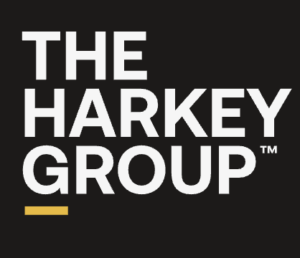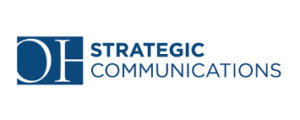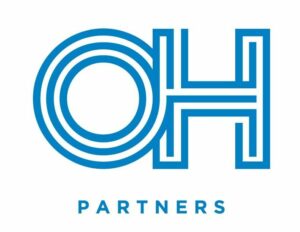Using research to avoid brand disaster — Jeremy King // Attest
- Part 1Making brand guesswork illegal — Jeremy King // Attest
- Part 2 Using research to avoid brand disaster — Jeremy King // Attest
Show Notes
-
01:57How to avoid brand disastersIt's crucial to gather feedback from target customers in the real world before launching campaigns. Numerous campaigns, like the Peloton ads in Europe, backfired due to the lack of external feedback to identify potential issues early.
-
04:29How to test campaigns before launchApproximately 1,000 individuals can cover a large market effectively, typically costing a couple of thousand dollars. An effective approach is to present the concept without branding, gather feedback, and address potential issues from subsegments that might emerge.
-
06:49Testing for risk mitigation and to refine creative for campaignsYou can use testing both to assess the potential for backlash from edgy ideas and to refine creative ideas. Testing helps avoid potential backlash and long-lasting damage to your brand and facilitates informed data-driven decision-making in today's marketing landscape.
-
09:16Balancing innovation and risk mitigation in marketing campaignsWhile innovation is essential, it's wise to balance it with testing to collect data that supports it. Research and testing can be valuable in ensuring the success of bold ideas and in convincing hesitant stakeholders to embrace a more daring approach.
-
12:15The importance of customer involvement before launching bold ideasWhile creative decisions shouldn't be driven by a committee, entirely excluding customers from the creative process is problematic. The cautionary tale of Brandless highlights the importance of testing and understanding market perception before a full-scale launching of a unique idea.
-
16:49Balancing arrogance and caution in marketing to avoid brand prisonAs marketers, we need confidence to innovate, yet it's vital to avoid overconfidence driven by confirmation bias. Incorporating customer feedback and opposing perspectives helps us avoid brand pitfalls and ensure that bold moves are strategic rather than just lucky gambles.
-
18:52Insights on brand loyalty amid economic pressuresAttest's research highlights evolving brand loyalty across US regions, demographics, and retailers due to inflation. Even affluent consumers are becoming more conscientious in their brand loyalty choices, underlining the need for tailored marketing using research and data.
-
23:58Changing consumer attitudes to environmentally friendly productsConsumer willingness to pay more for environmentally friendly products has declined significantly in recent years. Brands in this category should focus on achieving price parity to capture the 43% of consumers willing to pay a small premium.
-
27:06Capitalizing on budgetAn increasing number of Americans now control their grocery spending with fixed budgets. Brands and retailers have an opportunity to align with consumers by assisting them in adhering to these budgets, creating a positive brand perception, and enhancing the consumer experience.
-
31:22Paramount+ leveraging consumer insights for streaming successParamount+ is growing significantly with a free, ad-supported streaming model. The approach capitalizes on evolving consumer decisions in the streaming market and underscores the importance of understanding consumer preferences and pressures to adapt to changing market dynamics.
Quotes
-
"A few famous campaigns recently backfired horribly. But if only the people who came up with these campaigns had just interviewed 10 people on the street, they would have known that they were about to enter a disaster zone." - Jeremy King
-
"Unlike Steve Jobs' no-testing approach, for most, one brand misstep can have long-lasting consequences. Embracing experimentation and iteration can prevent such setbacks and make guesswork obsolete." - Jeremy King
-
"Inform every intuition, dissolve any doubt. We don't believe that research and testing have the answer every single time, but we believe it can be helpful in any situation." - Jeremy King
-
"Creative by committee equals watered down, consensus over boldness. Customer involvement is essential, even in bold campaigns; zero involvement is a problem." - Jeremy King
-
"Consumers prepared to pay a lot more for environmentally friendly products have fallen 4.7 percentage points to only 7% of the total population in the US." - Jeremy King
- Part 1Making brand guesswork illegal — Jeremy King // Attest
- Part 2 Using research to avoid brand disaster — Jeremy King // Attest
Up Next:
-
Part 1Making brand guesswork illegal — Jeremy King // Attest
Jeremy King, Founder and CEO of Attest, talks about how to take the guesswork out of your brand decision-making. Great marketers, brands, companies, and individuals are brimming with creative concepts and bold decisions. However, what they frequently lack is access to information and new data to substantiate their ideas. Today, Jeremy discusses making brand guesswork illegal.
Play Podcast -
Part 2Using research to avoid brand disaster — Jeremy King // Attest
Jeremy King, Founder and CEO of Attest, talks about how to take the guesswork out of your brand decision-making. Research empowers brands to gauge public sentiment, recognize potential pitfalls, and validate their messaging and campaigns. If Peloton had conducted consumer surveys, focus groups, or street interviews before their advertising misstep in Europe, they could have avoided the subsequent backlash. Today, Jeremy discusses using research to avoid brand disaster.







